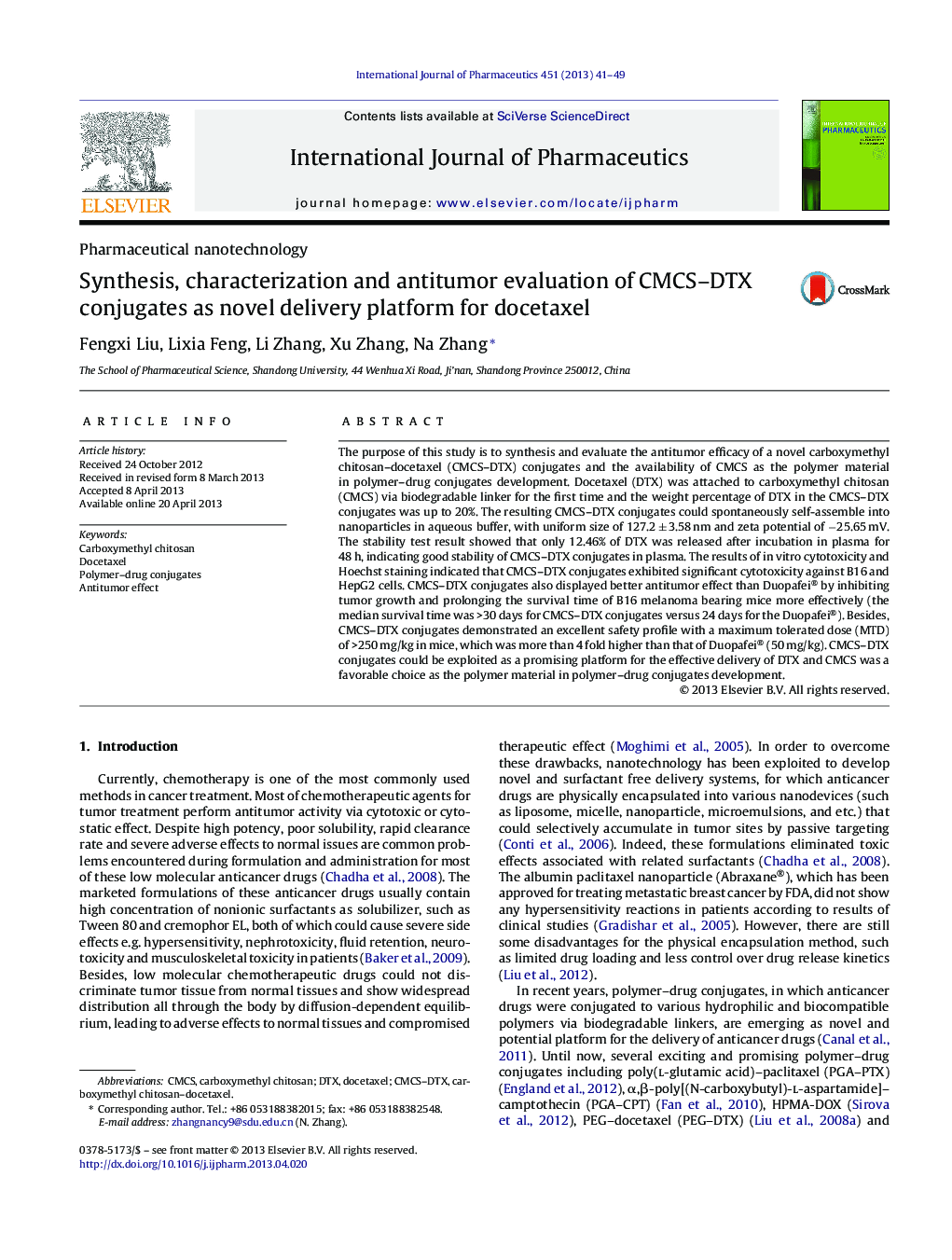| Article ID | Journal | Published Year | Pages | File Type |
|---|---|---|---|---|
| 2502253 | International Journal of Pharmaceutics | 2013 | 9 Pages |
The purpose of this study is to synthesis and evaluate the antitumor efficacy of a novel carboxymethyl chitosan–docetaxel (CMCS–DTX) conjugates and the availability of CMCS as the polymer material in polymer–drug conjugates development. Docetaxel (DTX) was attached to carboxymethyl chitosan (CMCS) via biodegradable linker for the first time and the weight percentage of DTX in the CMCS–DTX conjugates was up to 20%. The resulting CMCS–DTX conjugates could spontaneously self-assemble into nanoparticles in aqueous buffer, with uniform size of 127.2 ± 3.58 nm and zeta potential of −25.65 mV. The stability test result showed that only 12.46% of DTX was released after incubation in plasma for 48 h, indicating good stability of CMCS–DTX conjugates in plasma. The results of in vitro cytotoxicity and Hoechst staining indicated that CMCS–DTX conjugates exhibited significant cytotoxicity against B16 and HepG2 cells. CMCS–DTX conjugates also displayed better antitumor effect than Duopafei® by inhibiting tumor growth and prolonging the survival time of B16 melanoma bearing mice more effectively (the median survival time was >30 days for CMCS–DTX conjugates versus 24 days for the Duopafei®). Besides, CMCS–DTX conjugates demonstrated an excellent safety profile with a maximum tolerated dose (MTD) of >250 mg/kg in mice, which was more than 4 fold higher than that of Duopafei® (50 mg/kg). CMCS–DTX conjugates could be exploited as a promising platform for the effective delivery of DTX and CMCS was a favorable choice as the polymer material in polymer–drug conjugates development.
Graphical abstractFigure optionsDownload full-size imageDownload high-quality image (113 K)Download as PowerPoint slide
